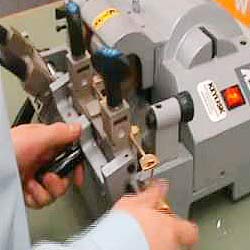Menu

 You’ve lived in your home for many years. You haven’t changed the locks since you moved in. Over time, you lost the original keys that came with your lock. As a result, you’ve made many duplicate house keys along the way. Does this sound like you? Don’t be surprised! Most of us, over time, lose keys.
You’ve lived in your home for many years. You haven’t changed the locks since you moved in. Over time, you lost the original keys that came with your lock. As a result, you’ve made many duplicate house keys along the way. Does this sound like you? Don’t be surprised! Most of us, over time, lose keys.
Everyone has reasons they lose keys. In my case, it happens when my adult children come home. I give spare keys to each one of them, so they can come and go as they want. The keys leave with the kids, but don’t return on their next visit, so the cycle starts again. As a result, I make a lot of duplicate house keys. Unfortunately, duplicate keys may not always work. Rarely, it is due to locksmith error. But there are more common reasons a new key may not work. Here’s why.
The unique pattern of cuts on the key shaft is precisely coordinates with the size of the pins inside the lock. The height of each key cut matches the length of the its corresponding pin. That coordination is what makes the lock work. Therefore, cuts need to be precise, so they can move the pin to the right place to allow the lock to turn. Sometimes, even an original key can become so worn that the profile of peaks and valleys no longer “fits” the lock.
The process of cutting duplicate house keys is fairly simple. The most accurate method is with a code. Original keys that come with locks have codes on them, called bitting codes that describe the depth each cut on the key shaft must be in order to match the pins inside the lock. The key may show the actual bitting code, or it may show a blind code. To get the actual bitting code from a blind code, you will need a special directory that is only available to licensed locksmiths.
When the key code is not available, you can duplicate a key by tracing its pattern. However, the traced pattern reflects wear the key has sustained so the duplicate key will not be a replica of a brand-new original key. In addition to reproducing the wear of the original, the duplicate key will not exactly match the pattern. The cutting machines are not exact. So, every copy of a key is slightly less perfect than the key it was made from.
We usually make our first copies of our keys from the original keys that come from the manufacturer. While these copies will not be perfect, they are the excellent copies because they use the original key as a template. What happens when we lose the original, though? Then, we start reproducing keys from copies. Since each copy is slightly different than the original, when you make duplicates from copies, the resulting keys will never be the same as the original. And, since each duplication adds its own imperfections, each generation of copies moves slightly farther away from the original pattern. So, as you make new duplicates from continually less perfect copies, eventually the duplicate keys become different enough from the original that they won’t work the lock.
When you get a new lock, always put one original key away somewhere safe. Don’t use it. Keep this as your master key from which all duplicates will be made. Because you don’t use this key, it will not get worn; it will stay as crisp and perfect as the day you got it. This will mean that all duplicate keys will be as close to perfect as possible and you will avoid the continual degradation of replacement keys.
If you have made many copies of your keys over the years and you don’t know where they all are, it may be time to consider changing the lock on that door. Key control is an important component of home or business security. No matter how good your lock is, if you don’t know who has a key, you may be leaving yourself open to mischief. You may have given your key to an old neighbor who was once a friend but no longer is. Or, you may have former employees who made copies of keys you don’t know about. If anyone you don’t want to have access could have a key, then change the lock. It’s a small price to pay for peace of mind.